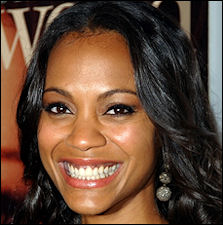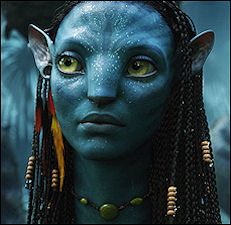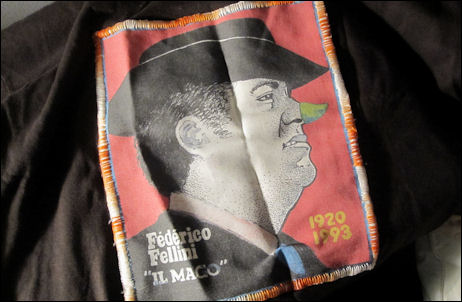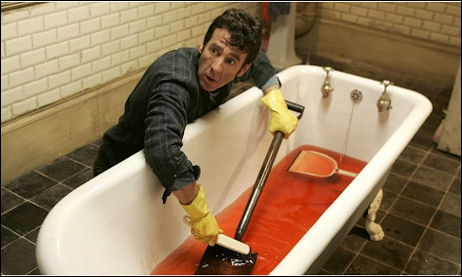I’ve been feeling more and more persuaded over the last couple of weeks that Zoe Saldana deserves a Best Actress nomination for her motion-capture performance as Neytiri in Avatar. In the manner of a silent-film actress Saldana’s emoting is necessarily broad, and I understand the uninformed suspicion that it’s not she who deserves the credit as much as the motion-capture tweaks that fine-tuned her performance, but my heart knows what it feels. Saldana got me.
Don’t even mention Meryl Streep‘s Dan Aykroyd-y performance in Julie & Julia alongside Saldana’s. When I think of Avatar I think first of the 3D-eyeball-sex aspect, and then the final embrace moment between big Neytiri and Sam Worthington‘s little Jake. That was a huge sink-in for me. I was responding to a woman — her bravery, conviction — and not a technology. I felt her character and emotionality as fully as Carey Mulligan‘s in An Education.
I regret to say that apart from the motion-capture suspicion there’s a slight downside afflicting Saldana’s chances. I don’t mean to sound like a snob, but she doesn’t speak like a cultured actress or, to be completely frank, a woman of great character or feeling in the interviews that she’s done to support the film. She’s a New Jersey neighborhood girl who lived for several years in the Dominican Republic, and she seems to “talk the walk” in this respect. And that argues with what I want from an Oscar-calibre actress. Neytiri has “it”; Saldana not so much.
I watch and listen to Saldana, and I don’t think RADA or Stella Adler or HB Studios. Or a higher education of any kind. Or some kind of up-from-the-streets Edith Piaf kapow factor. I’m trying to fight my way past this, but I felt more enthusiasm for her Avatar performance before seeing her on “Late Night with David Letterman” than after.
And yet MCN’s David Poland is dead-on when he says the following:
“I have been struck by how many people, Academy members included, have remarked on the emotional weight of Saldana’s performance holding [Avatar] together. She is both very physical and very raw emotionally… something we have not really seen since Ms. Weaver in Mr. Cameron’s Aliens.
“There is a lot of education to be done here. My interviews with Cameron and WETA’s Joe Letteri took me through both the intent of the filmmakers and how this first-time ever process truly allowed the actors to do all of their traditional acting work, even as they were computerized.
“But the bottom line is, this is a strong piece of acting. It is a full-out performance. And by the middle of the film, you believe in who Naytiri is, above and beyond being 10 feet tall, blue, and nearly naked. This is a testament to Zoe Saldana’s work. She deserves serious consideration for a nomination, as any other actress who had given a performance like this would.”
Pete Hammond says the following: “The reason Saldana will not get an acting nom is that the whole area of performance-capture is a very controversial one for actors. SAG even has a committee devoted to exploring the negative aspects of it and what it eventually will mean for actors.”




